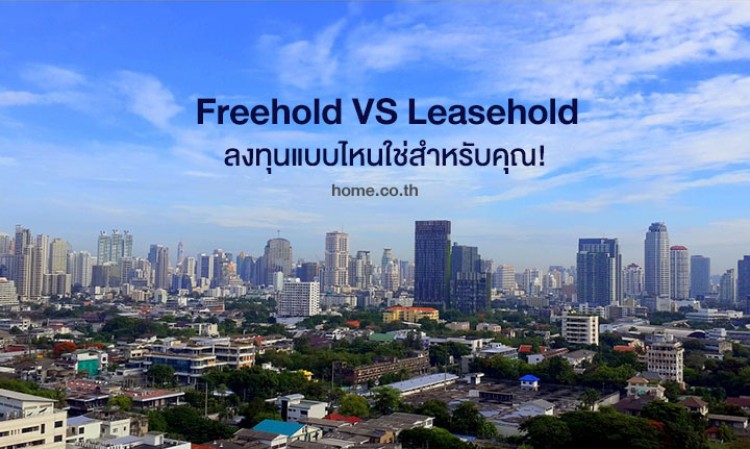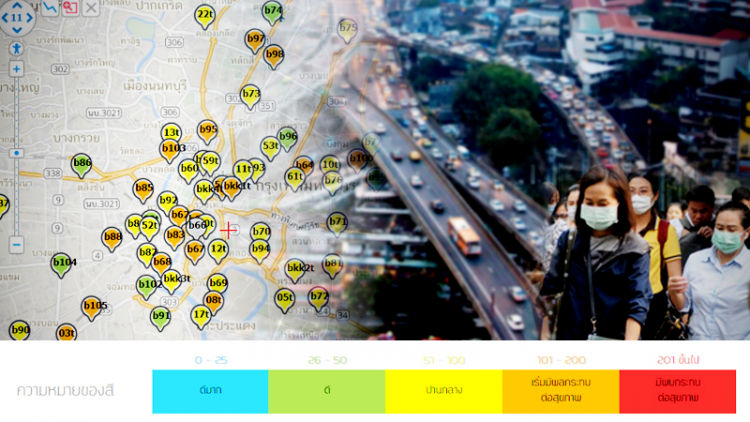Leasehold v Freehold – ลงทุนแบบไหนใช่สำหรับคุณ! TH/ENG

Leasehold v Freehold – what’s the difference?
It may seem like technical legal language, but there are few things more important about your home than whether it is freehold or leasehold. It makes the difference between owning your own home outright, and having a landlord
What are the different forms of home ownership?
There are two fundamentally different forms of legal ownership: freehold and leasehold. Although estate agents tend to gloss over it, the difference can be between a home that is worth buying and one that isn’t. Many people who don’t sort this out when they buy a home end up regretting it – getting it wrong can be hugely expensive.
What is freehold?
If you own the freehold, it means that you own the building and the land it stands on outright, in perpetuity. It is your name in the land registry as “freeholder”, owning the “title absolute”. Freehold is pretty much always the preferred option: you can’t really go wrong with it.
You won’t have to pay annual ground rent
You don’t have a freeholder either failing to maintain the building, or charging huge amounts for it
You have responsibility for maintaining the fabric of the building – the roof and the outside walls
Whole houses are normally sold freehold – there is no reason for a standalone house to be leasehold though there is an increasing trend for leasehold houses, particularly with new build homes, so check before you buy
What is leasehold?
Leasehold means that you just have a lease from the freeholder (sometimes called the landlord) to use the home for a number of years. The leases are usually long term – often 90 years or 120 years and as high as 999 years – but can be short, such as 40 years.
A leaseholder has a contract with the freeholder, which sets down the legal rights and responsibilities of either side
The freeholder will normally be responsible for maintaining the common parts of the building, such as the entrance hall and staircase, as well as the exterior walls and roof. However, other leaseholders might have claimed their “right to manage”, in which case it is their responsibility
Leaseholders will have to pay maintenance fees, annual service charges and their share of the buildings insurance
Leaseholders normally pay an annual “ground rent” to the freeholder
Leaseholders will have to obtain permission for any majors works done to the property
Leaseholders may face other restrictions, such as not owning pets or subletting
If leaseholders don’t fulfil the terms of the lease – for example, by not paying the fees – then the lease can become forfeit
ถ้าพูดถึงอสังหาฯ เพื่อการลงทุนเราอาจจะเเยกได้เป็น 2 ประเภทใหญ่ๆ ด้วยกัน นั่นก็คือ Freehold เเละ Leasehold นั่นเอง เเต่ก่อนที่เราจะไปดูเรื่องการลงทุนของสองอสังหาฯ ประเภทนี้มาทำความรู้จักก่อนดีกว่า
Freehold = อสังหาฯ ที่ผู้ถือครองเป็นเจ้าของกรรมสิทธิ์อย่างสมบูรณ์
Leasehold = อสังหาฯ ที่ถือครองผ่านการจ่ายค่าเซ้ง เพื่อให้ได้สิทธิการเช่าระยะยาวภายในระยะเวลาที่กำหนด
รู้จักความหมายกันคร่าวๆ ไปแล้ว คราวนี้ถ้าเกิดอยากจะลงทุนขึ้นมาล่ะ...จะเลือกแบบไหนดี
สำหรับการลงทุนอสังหาฯ แบบ Freehold เป็นการซื้ออสังหาฯ มาถือกรรมสิทธิ์ไว้ เเละในระหว่างเป็นเจ้าของเราก็จะนำมาหาผลแระโยชน์โดยการ "เช่า" นั่นเอง
เเต่ถ้านานๆ ไป เมื่ออสังหาฯ นั้นมูลค่าเพิ่มขึ้น ถ้าอยากเลิกลงทุนก็สามารถขายต่อให้คนอื่นได้ก็จะได้กำไรในรูปส่วนต่างราคา (Capital Gain) อีกต่อหนึ่ง
สรุปแล้วถ้าใครจะลงทุนแบบ Freehold หรือ "ซื้อลงทุน" ก็จะได้ผลตอบเเทน 2 ต่อด้วยกัน อย่างเเรกก็คือได้เงินจากการ "เช่า" เเละ "ขายต่อ" นั่นเอง
ที่นี้มาดูการลงทุนแบบ Leasehold กันบ้าง การลงทุนแบบ Leasehold หรือ "เซ้งเพื่อลงทุน" จะเป็นการจ่ายเงินก้อนเพื่อเเลกกับสิทธิในการเช่าอสังหาฯ ระยะยาวภายในระยะเวลาที่กำหนด ซึ่งกฎหมายกำหนดไม่เกิน 30 ปี จากนั้นก็นำมาหาประโยชน์โดยการให้เช่าช่วงต่อ
เพราะการลงทุนแบบนี้มีระยะเวลาการเช่าที่กำหนดไว้ ดังนั้นช่วงเวลาในการใช้ประโยชน์อสังหาฯ ได้จะลดน้อยลงตามลำดับ ทำให้มูลค่าสิทธิการเช่าน้อยลงตามไปด้วยเเละกลายเป็นศูนย์เมื่อครบกำหนดตามสัญญาเช่า เเน่นอนว่าเมื่อครบตามกำหนดเเล้วผู้เซ้งจะหมดสิทธิในการใช้ประโยชน์เลย เเละคืนอสังหาฯ ให้เจ้าของ
สำหรับผลตอบเเทนก็คือส่วนต่างของค่าเช่าทอดเเรกเเละทอดที่สองเท่านั้น ซึ่งจะน้อยกว่าการลงทุนแบบ Freehold มาก
ฟังแบบนี้หลายคนคงบอกว่าเเล้วทำไมเราไม่เลือกการลงทุนแบบ Freehold ไปเลย ดูจะคุ้มค่ากว่ามากๆ จริงๆ แล้วการลงทุนเเบบ Leasehold นั้นก็มีข้อดีเเละได้กำไร เพราะมักเกิดในสถานการณ์การลงทุนอสังหาฯ ที่ดีมากๆ (ทำเลดี) เจ้าของไม่ยอมขาย หรือบางทีอสังหาฯ นั้นไม่สามารถซื้อขายได้ อย่างอสังหาฯ ของราชการ วัด สำนักงานทรัพย์สิน เป็นต้น
หรืออาจลงทุนอสังหาฯ ให้หลากหลาย กระจายความเสี่ยง ซึ่งถ้าเลือกใช้การลงทุนแบบ Leasehold นั้นเเน่นอนว่าใช้เงินลงทุนน้อยกว่า
เปรียบเทียบให้เห็นภาพชัดๆ กันไปเลย!

Cr : https://www.home.co.th/hometips/detail/93275-Freehold-VS-Leasehold-ลงทุนแบบไหนใช่สำหรับคุณ






